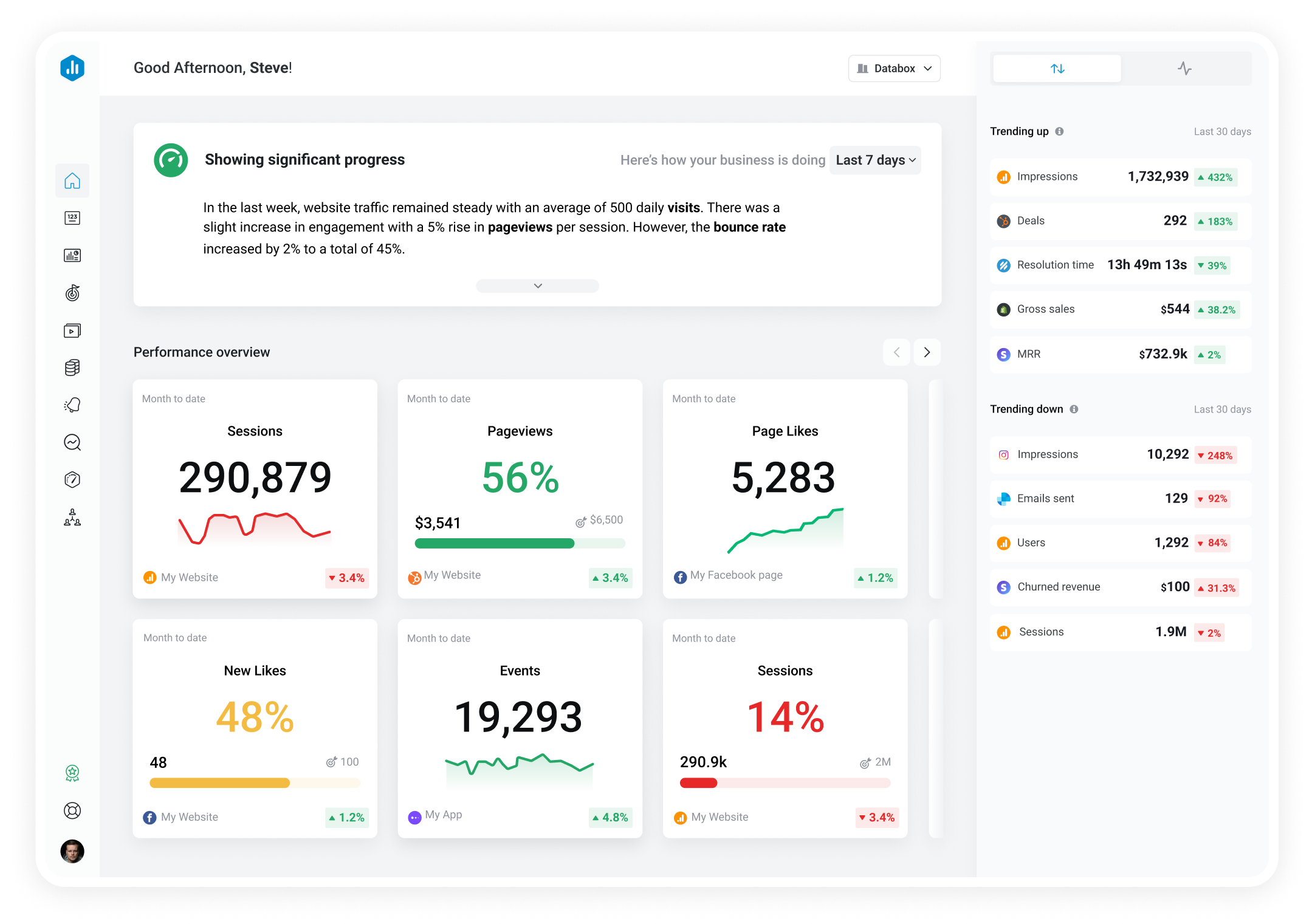Track all of your key business metrics from one screen
GET STARTED
 SharpSpring
Accounts
SharpSpring
Accounts The Accounts metric in SharpSpring refers to the number of individual companies or organizations that are being tracked within the platform for your marketing and sales efforts.
With Databox you can track all your metrics from various data sources in one place.
Accounts refer to the companies or organizations that your business is engaging with or targeting as potential customers. Each account represents a unique entity (e.g. company) and typically consists of multiple individuals (contacts) associated with that company.
Accounts are a fundamental concept in marketing automation and customer relationship management (CRM) systems. They serve as the central hub for managing and tracking interactions, activities, and data related to specific companies.
By organizing customer data into accounts, businesses gain a holistic view of their relationships with different companies, which is essential for developing effective marketing and sales strategies.
Calculating the number of accounts typically involves counting the unique companies represented in your marketing automation or CRM system.
An account is a single entity representing a specific company, so if you have multiple contacts associated with the same company, they should be grouped under one account.
The formula is simple:
Number of Accounts = Count of Unique Company Names or Identifiers
Let’s say you have a marketing automation system with a list of contacts, and you want to calculate the number of accounts represented by these contacts.
Here is one example of a list of contacts and their corresponding companies:
In this example, we have three unique company names: Company A, Company B, and Company C. Therefore, the number of accounts would be 3.
Remember that the accuracy of this calculation depends on the cleanliness of your data and how well you organize and de-duplicate the account records.
Increasing the number of accounts is a critical goal for any business looking to expand its customer base.
Simply put, a larger pool of accounts provides greater opportunities for sales and revenue generation.
There are different approaches you can take to do this, but here are some of the strategies that are considered best practices across different industries:
More resources to help you improve:

Used to show a simple Metric or to draw attention to one key number.

Used to illustrate numerical proportions through the size of the slices.

Used to show comparisons between values.
Databox is a business analytics software that allows you to track and visualize your most important metrics from any data source in one centralized platform.
To track Accounts using Databox, follow these steps:
 Goals
Goals Scorecards
Scorecards Metric Digest
Metric Digest Metric Builder
Metric Builder Data Calculations
Data Calculations Performance Screen
Performance Screen